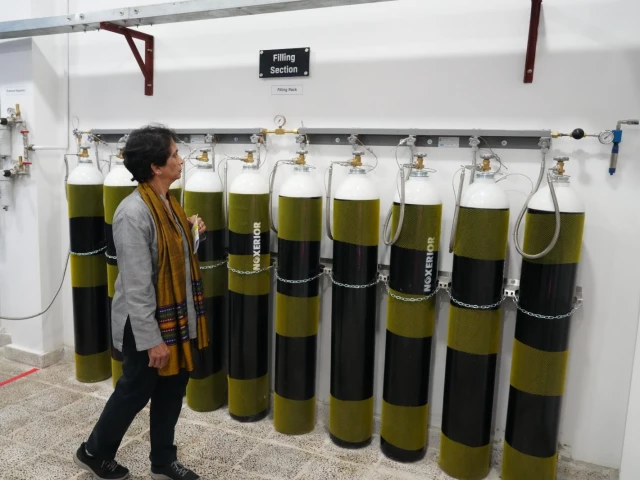In a major initiative to strengthen Pakistan’s public health infrastructure, the United Nations Development Program (UNDP), in partnership with the Government of Pakistan and the Global Fund, is leading a project to acquire and install 36 oxygen production plants in public hospitals across the country. The effort, which runs from March 2022 to December 2025, is supported by a total budget of $52 million.
The project will be rolled out across the four provinces of Balochistan, Khyber-Pakhtunkhwa, Punjab and Sindh, as part of a strategic initiative to address critical gaps in the supply of medical oxygen, a vulnerability that has been clearly exposed during the COVID-19 pandemic.
Read: Continued assistance to districts affected by floods: UNDP
At its core, the initiative focuses on providing physically installed and fully operational oxygen generators. But according to the UNDP, the project goes much further. It includes training of nursing and technical staff in maintenance, commissioning of systems under third-party supervision to meet safety standards and structured handover to local hospital management to ensure long-term sustainability.
To future-proof the system, the program also includes upgrades to the associated infrastructure. These include the integration of solar-powered HVAC systems for climate control in healthcare facilities, modern warehouse shelving for safer storage of medicines and vaccines, and improvements to medical logistics systems.
The integration of renewable energy and resilient storage solutions aims to reduce dependence on external supply chains and improve service continuity in the face of environmental or logistical challenges.
Learn more: Fatima Fertilizer partners with UNDP: first company in Pakistan to adopt SDG impact framework
UNDP hopes that once completed, the project will significantly strengthen Pakistan’s capacity to respond to respiratory emergencies and critical care demands. Hospitals will benefit from reliable access to medical-grade oxygen, and hospital and central maintenance unit staff will gain the technical know-how needed to independently operate, service and maintain the new systems.
Improvements in logistics, storage and energy resilience should also reduce waste and ensure better management of essential medicines and vaccines.
This project aligns with UNDP’s broader objectives to drive inclusive, climate-responsive and accountable health service delivery across Pakistan.
By integrating renewable energy and infrastructure modernization in the health sector, UNDP and its partners aim not only to resolve immediate oxygen shortages, but also to build a stronger and more resilient health system for the future.




